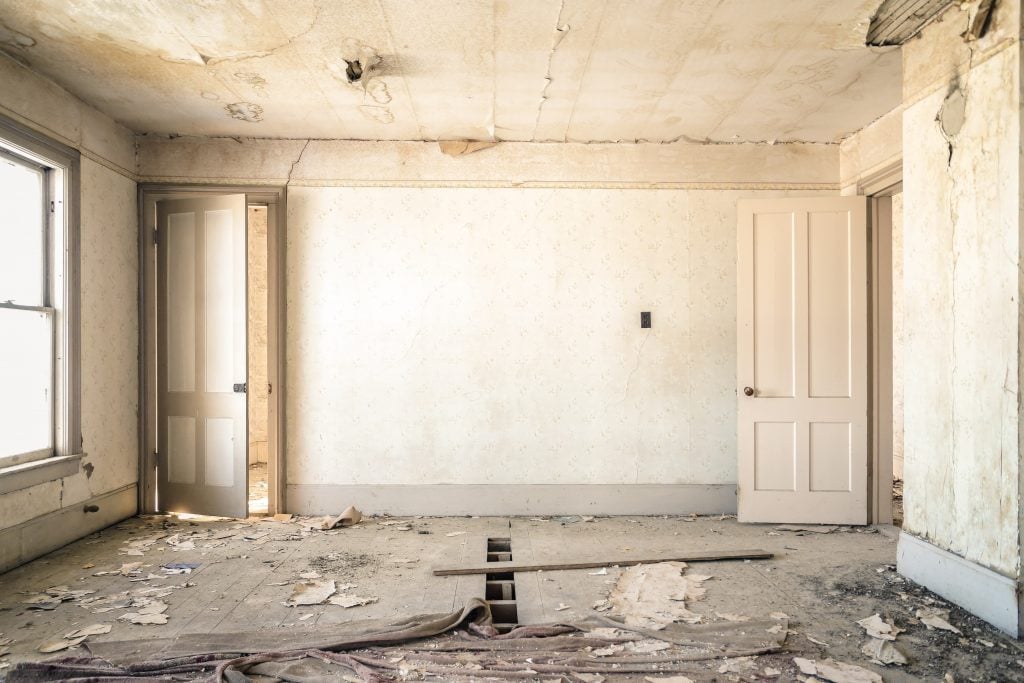Renovating a property can be fun and profitable. It’s the chance to flex your creativity and turn a distressed property into your own masterpiece. A process that can give you the dream look you want in your home, or become an income producing rental property or house flip. Here’s what you need to know to make it a great experience instead of a major stressor.

Permits & Licensed Contractors
Before you make any changes to a property, make sure you know if you need permits or not. Moving walls or doors, adding a swimming pool, converting garages, tree removal and replacing a water heater are all things that cna require permits. Trying to get away without getting the permit can lead to big fines and a lien on your property. You are going to have to get them anyway. It’s just cheaper and less stressful if you do it in advance.
Some changes and improvements won’t require a permit. You’ll just need a licensed and insured contractor. Ask your contractor about the need for permits. They can usually handle it for you if they are needed.
Budgeting For & Financing Improvements
This is what catches more homebuyers and real estate investors off guard than anything else. It’s always wise to build in a cushion for overages. 15% to 25% is a good margin to keep you safe, and keep the project stress free. If you don’t go over budget, then this is all extra profit or equity you can take to the bank.
One of the worst mistakes rehabbers make is to use up all their cash and current credit limits and then not be able to finish the job. If you can’t finish and rent, resell or live in the property it can get ugly financially. Instead, try to obtain additional credit lines in advance while your credit score is still good. Ask your contractors and vendors about their financing. They can offer great deals, while helping you keep more cash in the bank.
Value Add Improvements
Those ‘reality’ TV shows may be inspiring, but they are mostly fiction. If you are planning to relist this property for rent or sale with a Realtor, of course they want you to spend the money to make it beautiful. If this is an investment, then you need to focus on the numbers like a business, not renovate like it is a luxury hobby. Most cosmetic changes are simply that. They may make it look prettier, but typically don’t add a dollar to the appraised value of the property. Many won’t recoup most of the money you put in.
Instead, it is smarter to focus on the high value improvements. Those which will really increase property value, add equity and give you a return on your money. These are typically your structural improvements. Fixing real flaws. For example roofs, foundation and crawl space repair, updating major systems and eliminating any health risks.
These items will also ensure you can safely rent the property to someone else, or live in it yourself. As well as sell it.
Special Inspections
Your basic home inspection may not cover everything. It just may not be included in the basic inspection or the inspector may not be required to dig that deep. Unfortunately, it is usually the most expensive and critical problems that slip through these cracks. The items you really need to know about.
You may want to request extra inspections for:
Hidden Problems
Even when the seller or agent isn’t trying to breeze over issues they know about, it is the hidden flaws that are the biggest expenses. For example, you may not know that you have to call in a septic tank service for some cleaning or a replacement and that can cause all the sewage to build up and cause horrible leaks leading to really nasty smells in your home. It really pays to investigate the property thoroughly in advance of closing. Talk to the neighbors to see if they know of anything. If in doubt have contractors come out to inspect and give you are free quote. You do not want to close and then start work, only to find unexpected repairs. Imagine you’ve just put in new flooring, doors, windows and painted. Then a major leak shows up. You may have to redo everything. That’s time and money.
If you know in advance, you can renegotiate with the seller, ask Realtors and mortgage loan officers to chip in to cover costs, or get a home loan that provides extra funds for repairs.
Photo by Nolan Issac on Unsplash